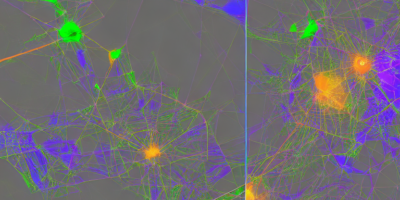The article discusses the importance of understanding the perception of speech in noisy environments and how it can be improved through the use of hearing aids. The authors explain that the human ear has a limited ability to separate speech from background noise, which can lead to difficulties in understanding speech in loud environments. To address this challenge, the article focuses on the Modified Binaural Short Time Objective Intelligibility (MB-STOI) metric, which measures the ability of hearing aids to improve speech intelligibility in noisy environments.
The authors explain that MB-STOI takes into account both binaural processing and signal-to-noise ratio (SNR), providing a more comprehensive measure of speech intelligibility. They also highlight the importance of considering the complexity of the hearing aid system, as a higher complexity can lead to better speech intelligibility but may also result in increased power consumption.
To demonstrate the effectiveness of MB-STOI, the authors present experimental results using a Gaussian channel model and a realistic hearing aid setting. They show that the GCBFSNet algorithm, which incorporates binaural processing and SNR considerations, achieves improved speech intelligibility compared to other algorithms.
The article concludes by highlighting the importance of MB-STOI in evaluating the performance of hearing aids in noisy environments and providing insights into the factors that affect speech intelligibility. The authors emphasize the need for further research to improve the accuracy and efficiency of MB-STOI and to develop more advanced hearing aid algorithms that can provide better speech intelligibility in complex noise scenarios.
In summary, the article provides a detailed analysis of the Modified Binaural Short Time Objective Intelligibility (MB-STOI) metric, which measures the ability of hearing aids to improve speech intelligibility in noisy environments. The authors demonstrate the effectiveness of MB-STOI through experimental results and highlight the importance of considering binaural processing and signal-to-noise ratio when evaluating the performance of hearing aids.
Audio and Speech Processing, Electrical Engineering and Systems Science
Speaker-Independent Auditory Attention Decoding Without Access to Clean Speech Sources



